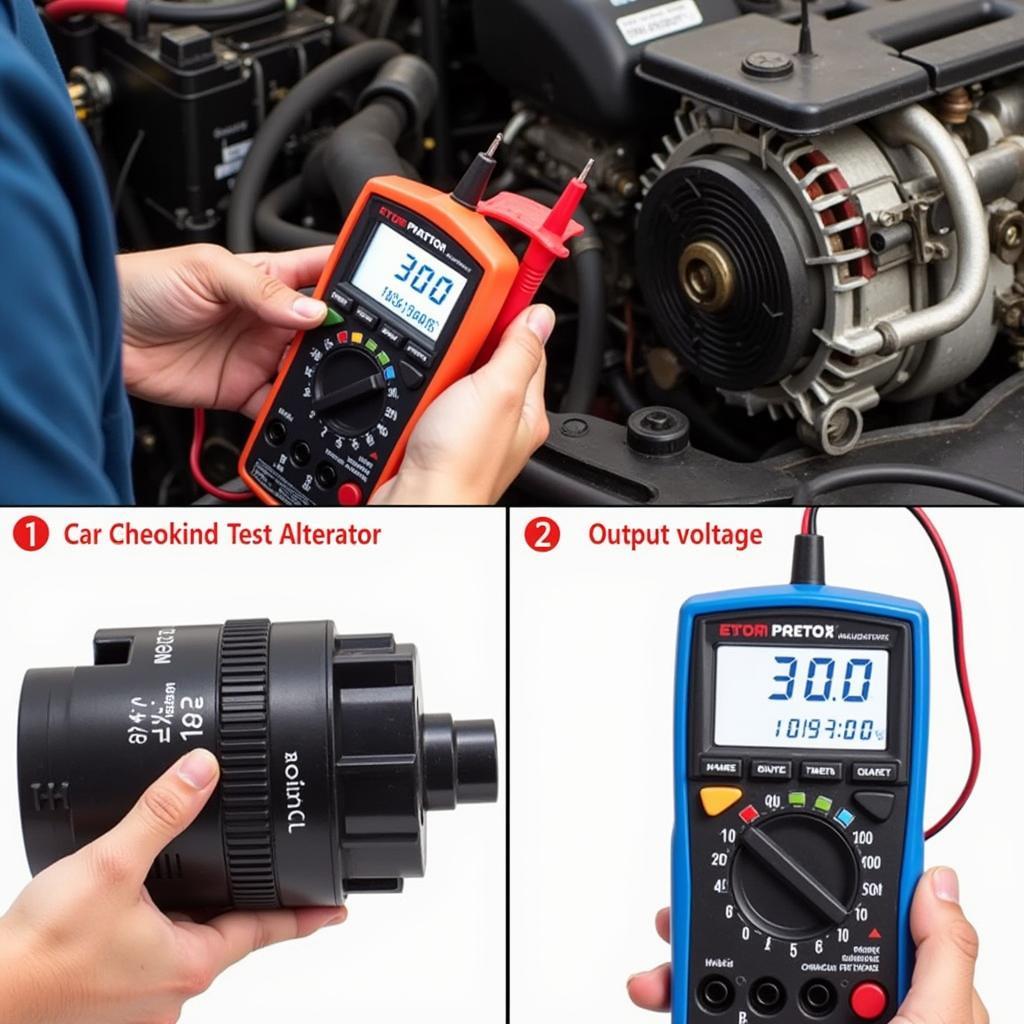Your car battery died, you got a jump, and now… nothing. It’s frustrating when your car still not starting after jump. But don’t panic, there are several reasons why this might be happening, and most are relatively easy to diagnose and fix. This guide will walk you through the common culprits and how to troubleshoot them.
Why Is My Car Still Not Starting After a Jump?
Even after a successful jump start, several underlying issues can prevent your car from starting. These range from simple problems like a loose battery connection to more complex ones like a faulty starter or alternator. Understanding these potential issues is the first step towards getting your car back on the road.
Checking the Basics: Battery Connections and Cables
Sometimes the simplest solution is the right one. Double-check all battery connections. Ensure they are clean, tight, and free of corrosion. Corrosion can disrupt the flow of electricity, preventing the battery from receiving a charge or starting the car. A corroded terminal can also prevent a jump start from being effective. Also, inspect the jumper cables themselves. Are they damaged or frayed? A faulty cable can prevent a proper jump.
Beyond the Battery: The Starter and Alternator
If your connections are good, the problem might lie with your starter or alternator. The starter is responsible for cranking the engine, while the alternator recharges the battery while the engine is running. A clicking sound when you try to start the car often indicates a failing starter motor. A failing alternator, on the other hand, won’t recharge your battery, even if you get the car started with a jump.
“A common misconception is that a jump start is a permanent fix for a dead battery,” says automotive electrical expert, David Miller, “It’s more like a temporary boost to get you to a mechanic. If the underlying issue isn’t addressed, the problem will recur.”
Diagnosing the Problem: A Step-by-Step Guide
- Check the battery connections: Make sure they are clean, tight, and corrosion-free.
- Inspect the jumper cables: Look for any damage or fraying.
- Listen for clicking sounds: This may indicate a starter problem.
- Test the alternator: If the car starts after a jump but dies shortly after, the alternator might not be charging the battery. A simple multimeter can help you test the alternator’s output.
 Testing Car Alternator with Multimeter
Testing Car Alternator with Multimeter - Check the fuel system: While less common, a lack of fuel can also prevent a car from starting. Ensure you have enough gas in the tank.
Could it Be Something Else?
While the above issues are the most common reasons a car won’t start after a jump, other possibilities exist, including a faulty ignition switch, a blown fuse, or even a problem with the car’s computer system.
Remote Diagnostics and Programming: A Modern Solution
“Remote diagnostics and software programming are transforming how we fix cars,” explains Sarah Chen, a leading automotive software engineer. “We can often pinpoint the issue and even implement software updates remotely, saving car owners valuable time and money.” 20017 buick rendezvous brake warning alarm comes on while driving These cutting-edge solutions can be incredibly helpful for diagnosing complex electrical problems, especially when traditional methods fail.
Conclusion: Getting Your Car Back on the Road
A car still not starting after jump can be a frustrating experience. However, by understanding the common causes and following the troubleshooting steps outlined above, you can often identify the problem and get your car running again. Remember, a jump start is often just a temporary fix. If your car continues to have starting problems, it’s essential to address the underlying issue to avoid getting stranded again. Don’t hesitate to seek professional help if you’re unsure about diagnosing or fixing the problem yourself.
FAQ: Car Still Not Starting After Jump
- Can a dead battery cause a car not to start even after a jump? Yes, if the battery is completely dead or has an internal fault, it may not be able to hold a charge even after a jump.
- How long should a jump start take to work? Usually, a few minutes of charging from another car should be sufficient. If the car still doesn’t start, the problem likely lies elsewhere.
- Is it safe to jump start a car? Yes, as long as you follow the proper procedures and safety precautions.
- What should I do if my car still won’t start after trying everything? It’s time to call a tow truck and take your car to a qualified mechanic for a thorough diagnosis.
- Can a bad alternator prevent a car from starting after a jump? While a bad alternator primarily affects the battery’s charging ability, a severely drained battery due to a faulty alternator can prevent the car from starting even after a jump.
- How often should I replace my car battery? Car batteries typically last 3-5 years, but various factors can influence their lifespan.
- What are the signs of a failing starter? Common signs include clicking noises when turning the key, the engine not cranking, and intermittent starting problems.
